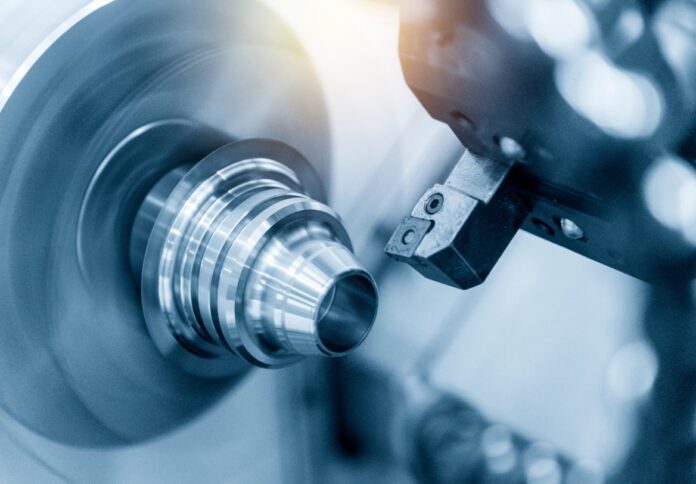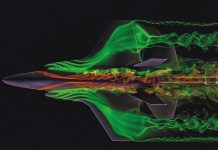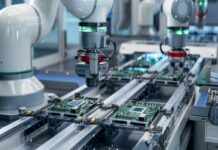
Renowned strategist, economist, and futurist Professor Henrik von Scheel, widely credited as the originator of the 4th Industrial Revolution, will headline this year’s Industrial Transformation Australia – a HANNOVER MESSE event—in Sydney.
In an exclusive interview with Australian Manufacturing, Prof von Scheel shared insights on the birth of Industry 4.0, the evolving megatrends shaping the sector, and how Australia can harness disruption to strengthen its global position.
Dubbed the “Godfather of the 4th Industrial Revolution” and recognised by CNBC as “the most influential futurist of our century,” von Scheel has shaped more than just industrial concepts. He has played an instrumental role in developing global frameworks like the EU AI Act and Scope 1–3 Climate directives, and co-founded Strategic Intelligence – the group that sets future agendas for the World Economic Forum, McKinsey, and sovereign wealth funds such as Saudi Arabia’s PIF.
“The 4th Industrial Revolution was about recognizing the convergence of digital, physical, and biological systems,” von Scheel explained. As early as 2009, he and Professor August Wilhelm Scheer helped formulate Germany’s digital strategy as part of the Advisory Council to the Federal Ministry of Economy and Technology. Their contributions led to the “Digital Agenda,” later adopted as the European Digital Agenda 2020 – a strategy that today contributes €660 billion annually to the EU economy.
“The Digital Agenda was about more than technology,” von Scheel said. “It was about creating a framework where innovation could thrive, connecting economies, industries, and societies in unprecedented ways.”
In 2011, von Scheel introduced the term “Industry 4.0” while working with Germany’s Federal Ministry of Education and Research, co-developing the country’s high-tech strategy. The vision, announced in 2013, described a seismic shift in value creation driven by 77 megatrends and unfolding in eight evolutionary stages.
“It’s not just about automation or data,” von Scheel said. “It’s a paradigm shift – integrating digital, physical, and biological systems to redefine how we create value.”
Currently, global industry is navigating the fourth of eight evolutionary stages, with von Scheel predicting this journey will continue until at least 2050, when a new, undefined phase – Industry 5.0 – might begin. The eight stages include the Digital, Technology, Environmental, Economic, Bio, Consumer, Fusion Science, and Quantum Reality (R)evolutions.
“This affects every aspect of our lives—how we live, consume, work and interact with each other,” he said. “The tectonic plates of our economy, government systems and wealth distribution are shifting while the competitiveness and industry borders are eroding.”
Von Scheel’s contributions extend far beyond manufacturing. As co-founder of Strategic Intelligence, his insights have shaped global agendas for the World Economic Forum, McKinsey & Company, and sovereign wealth funds, including Saudi Arabia’s Public Investment Fund. His policy work includes advising on the EU’s Artificial Intelligence Act and playing a central role in shaping climate frameworks such as the European Green Deal, FIT for 55, and CBAM regulations.
“Climate and AI are two sides of the same coin,” he noted. “Both require us to balance innovation with responsibility.”
Recognised with the Knowledge Award—considered the Nobel Prize of knowledge sharing—von Scheel has authored over 150 business, architecture, and IT standards, including the widely used SAP implementation method.
“Knowledge is only valuable when it’s shared,” he said. “The award reflects 20 years of work… and empowering organizations to execute strategies that matter.”
Looking at the Australian manufacturing landscape, von Scheel sees great potential—but warns that real transformation requires more than marginal gains.
“Australia’s manufacturing and all the other sector have a very technology- and vendor-driven approach, resulting in what can be described as “polishing the pig”—incremental improvements that fall short of transformative impact,” he said.
“To achieve the full potential of the 4th Industrial Revolution, manufacturers must shift from continuous, marginal gains to bold, strategic imperatives that drive significant growth and global competitiveness.”
He believes Australia is well-positioned to capitalise on the eastward shift in global economic power—but only if manufacturers adopt a strategic “Operate to Grow” mindset. This includes leveraging convergent technologies such as AI, Digital 2.0, and machine learning to achieve productivity gains of 20 to 30 per cent, while aligning with international sustainability benchmarks like the EU’s Green Deal.
Key to this success will be embracing sustainability, enhancing inventory financing for operational agility, and developing in-house expertise to drive AI adoption without over-relying on consultants.
“For manufacturers, the hype surrounding artificial intelligence (AI) often overshadows its practical realities—the menu is not the meal,” von Scheel said. “To truly harness AI’s potential, manufacturers must focus on strategic implementation, prioritising technologies like Shadow AI, Robotic Process Automation (RPA), and advanced machine learning techniques.”
When asked what steps Australia must take to avoid being left behind, von Scheel emphasised the importance of collaboration and strategic thinking.
“Key differentiators are designed in closed-door-room setting. I’m confident that if Australian manufacturers want to excel, they will seek collaboration. Otherwise, they will follow the same path as other countries.”
Professor von Scheel is set to speak at Industrial Transformation Australia, a HANNOVER MESSE event taking place from 22 to 24 July 2025 at The Dome, Sydney Olympic Park, where he is expected to encourage the manufacturing sector to embrace change, take a long-term strategic view, and focus on execution.


















